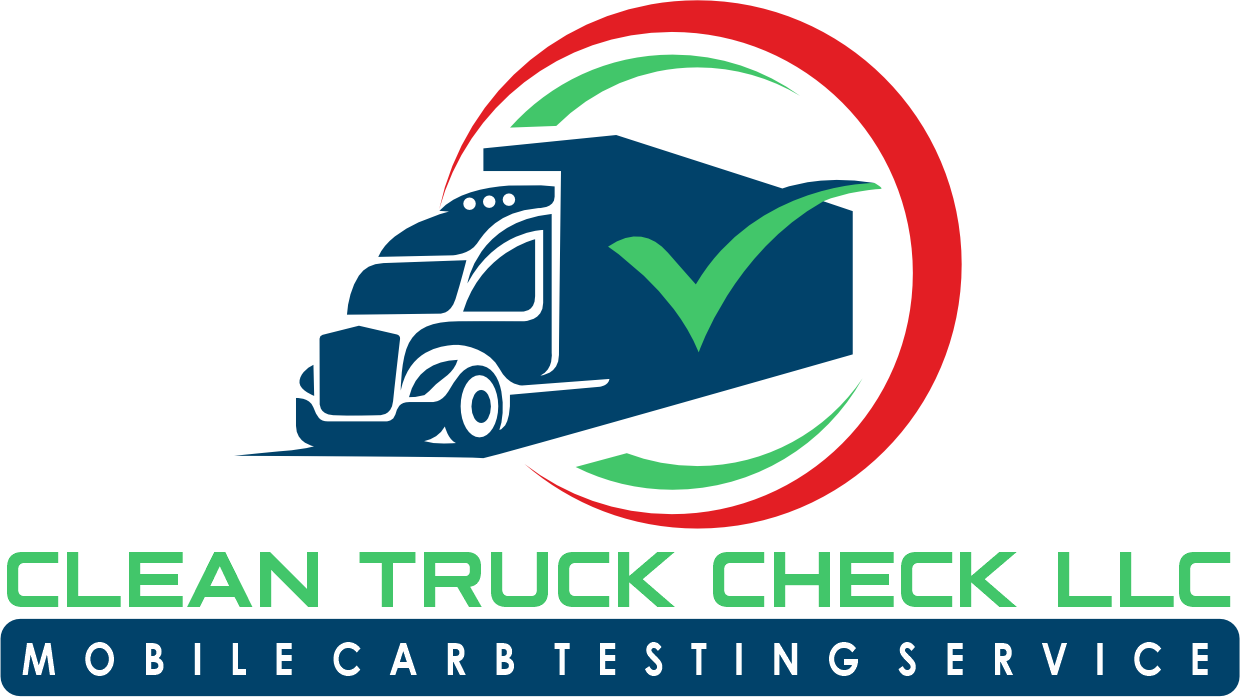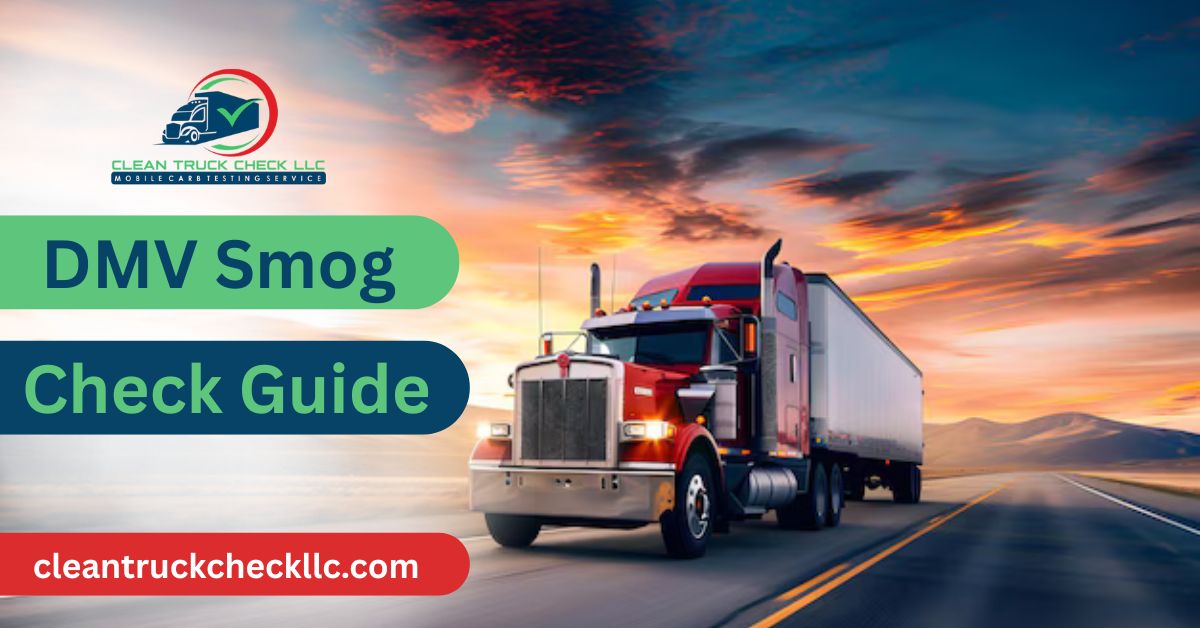Staying compliant with emissions laws is essential for all vehicle owners, especially in states like California where regulations are strict. A DMV smog check (CARB Test for Diesel Trucks) plays a crucial role in controlling vehicle emissions and keeping the air cleaner. Whether you’re renewing your vehicle registration or buying a used car, understanding how the smog check system works can save you time, money, and legal trouble.
In this guide, we’ll walk you through the complete process of the DMV smog check—what it is, why it matters, who needs it, and how to pass it.
What is a DMV Smog Check (CARB Test for Diesel Trucks)?
Understanding the Purpose of a Smog Check (CARB Test for Diesel Trucks)
A DMV smog check is a government-mandated inspection that assesses a vehicle’s emissions to ensure it meets state air quality standards. These checks help reduce air pollution by identifying cars that emit excessive levels of harmful pollutants. The test includes examining the engine, fuel system, onboard diagnostics, and tailpipe emissions.
How It Affects Vehicle Registration and Compliance
In many states, including California, passing a smog check is a prerequisite for renewing your vehicle registration. If your vehicle fails the inspection, you won’t be able to legally drive it until the necessary repairs are made and it passes the test.
DMV Smog Check (CARB Test for Diesel Trucks) Requirements
Vehicles That Need a Smog Check
Most gasoline-powered vehicles that are more than 8 model years old are required to undergo regular smog inspections. Diesel vehicles weighing under 14,000 pounds and manufactured after 1998 are also included in DMV smog check (CARB Test for Diesel Trucks) requirements.
Exemptions from Smog Checks (CARB Test for Diesel Trucks)
Some vehicles are exempt, including:
- Electric vehicles
- Hybrids (for the first few years)
- Vehicles that are 1975 model year or older
- Motorcycles
- Diesel vehicles over 14,000 pounds
Always consult your local DMV or a trusted emissions service provider like Clean Truck Check LLC to know your exemption status.
Frequency of Smog Inspections (CARB Test for Diesel Trucks) by DMV
Typically, smog checks are required every two years. However, the first six to eight years of a new vehicle’s life may be exempt depending on the state’s current regulations.
DMV Smog Certification Explained
What is a DMV Smog Certification?
A DMV smog certification is an official document provided after a vehicle passes the smog inspection. This certificate is electronically sent to the DMV and is required for registration, transfer of ownership, or sale.
How to Obtain Smog Certification
To receive certification, your vehicle must pass the required emissions tests conducted at authorized DMV smog stations. Providers like Clean Truck Check LLC ensure vehicles are tested to meet compliance and guide owners through the certification process.
Validity and Renewal of Certification
A smog certificate is typically valid for 90 days. If you don’t complete your registration within that window, a new test may be required.
What Happens During a DMV Smog Inspection?
Key Steps of the Inspection Process
A standard DMV smog inspection involves:
- Visual inspection of emissions control systems
- Functional tests of various components
- Tailpipe emissions test (for older vehicles)
- Onboard diagnostics system (OBD) check for newer vehicles
Emission Standards and Test Criteria
The criteria vary based on the model year, engine type, and vehicle classification. Vehicles must meet specific limits for carbon monoxide (CO), hydrocarbons (HC), and nitrogen oxides (NOx).
Choosing the Right DMV Smog Stations
Tips to Find Certified Smog Check (CARB Test for Diesel Trucks) Stations
Look for:
- State certification or license
- Customer reviews and ratings
- Services offered (test-only or test-and-repair)
Clean Truck Check LLC is a trusted name in the industry, offering professional testing services that ensure accuracy, compliance, and convenience.
Difference Between Test-Only and Test-and-Repair Stations
- Test-only stations perform inspections but cannot conduct repairs.
- Test-and-repair stations can do both, making them convenient if your vehicle needs adjustments to pass.
What to Do if Your Vehicle Fails the DMV Smog Check (CARB Test for Diesel Trucks)
Common Reasons for Failure
- Faulty oxygen sensors
- Worn spark plugs
- Leaking vacuum hoses
- Check engine light on
- Malfunctioning catalytic converter
Steps to Take After Failing the Inspection
- Review the inspection report for details.
- Get necessary repairs from a certified mechanic.
- Retest your vehicle at an approved station.
Clean Truck Check LLC provides expert guidance in retesting and ensuring vehicles are fit for certification after initial failure.
FAQs About DMV Smog Check
Q1: How often is a DMV smog check (CARB Test for Diesel Trucks) required?
Every two years for most vehicles, unless exempt.
Q2: Can I sell my car without a smog check (CARB Test for Diesel Trucks)?
In many states, sellers must provide a valid smog certification for vehicles being sold.
Q3: What if I recently had repairs done?
It’s best to drive at least 100-200 miles after repairs before testing to allow systems to recalibrate.
Q4: What should I bring to the test?
Bring your DMV renewal notice or vehicle registration, and ensure the vehicle is in good working condition.
Conclusion
A DMV smog check is more than just a legal formality—it’s an essential step in reducing pollution and keeping your vehicle roadworthy. Understanding DMV smog check (CARB Test for Diesel Trucks) requirements, the inspection process, and certification procedures can make the experience smooth and stress-free.
For reliable and expert smog check services, Clean Truck Check LLC is your trusted partner. With a reputation for efficiency and compliance, they help vehicle owners navigate smog regulations confidently. Learn more at cleantruckcheckllc.com.

